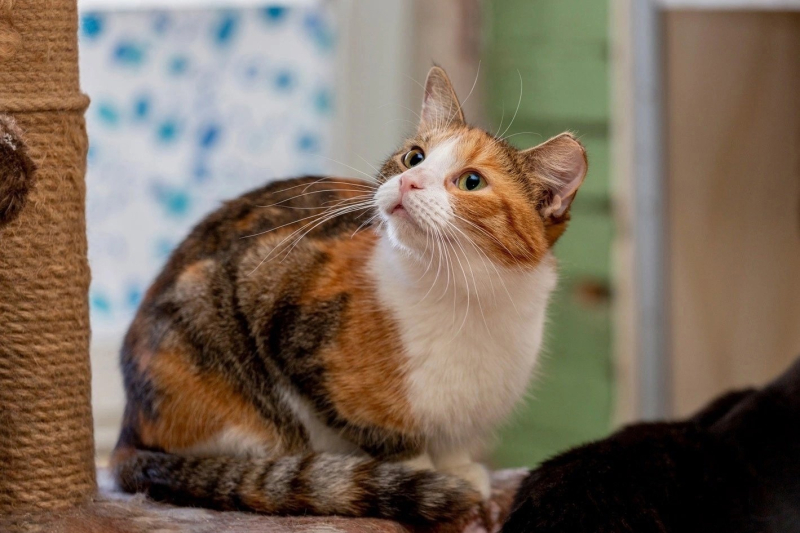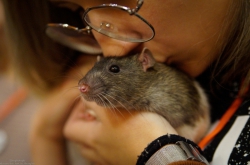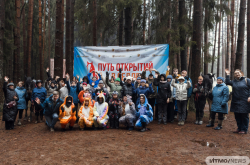Contents:
About the club
Paws of Help (Лапки помощи) was founded by ITMO students in 2018. Over the past 6 years, its main mission has remained the same: to connect students who share a passion for helping animals.
Throughout the academic year – and even on summer break – its members take part in a variety of activities: volunteers organize donation runs, visit shelters to help out with chores, play with the animals and take them on walks, and even help set up venues for events such as agility competitions. Events are typically announced 2 weeks in advance
Club members on a visit to the Kelts Angels dog shelter. Credit: vk.com/pawsofhelp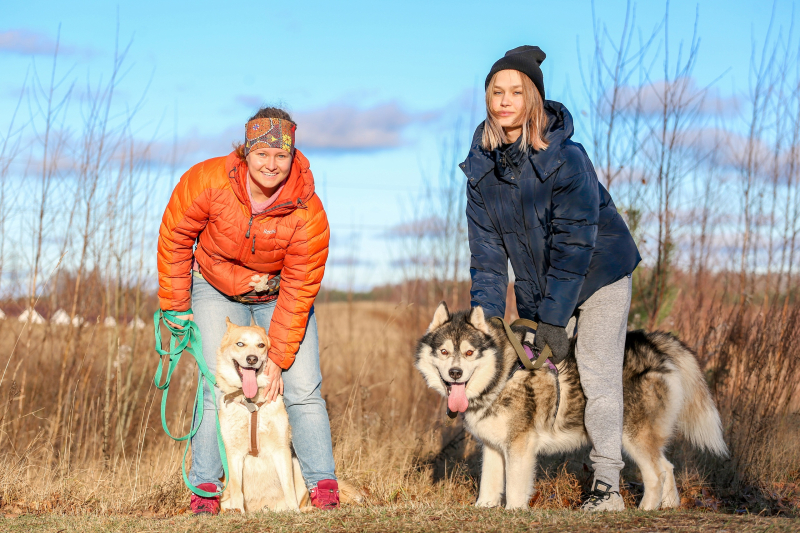
However, membership in the club has more benefits aside from getting to hang out with plenty of cute pets. It’s also a great way to make new friends and even break international barriers! ITMO.NEWS spoke with Kristina Vashchenko, the current head of Paws of Help, and Maria Bogdanova, its social media manager, to learn about the club’s history, current activities, and more:
Besides the opportunity to volunteer and help out, what do the club’s members gain from the experience?
Firstly, you also gain new friends who share your values and passions. Secondly, our off-site events often offer a great way to change up your surroundings and spend some time outside and among nature. While there, you get to learn about animals’ needs and how to work with charity organizations. Lastly, volunteering is a way to hone your organizational and teamwork skills.
There are now international students among your members – how has that influenced the club’s activities?
We’re really glad that they are aware of the club and don’t shy away from joining us. For them, it’s a chance to practice their Russian; for us and other volunteers – to practice our English; and for all of us, it’s an opportunity to learn about each other’s cultures firsthand.
A student’s experience
We also spoke to Yohana Beatrice Nainggolan, an exchange student from Indonesia who is studying in the Master’s program Information Security, about her experience with Paws of Help.
Yohana Beatrice (left) with fellow club members on a visit to Sunny Island. Photo courtesy of subject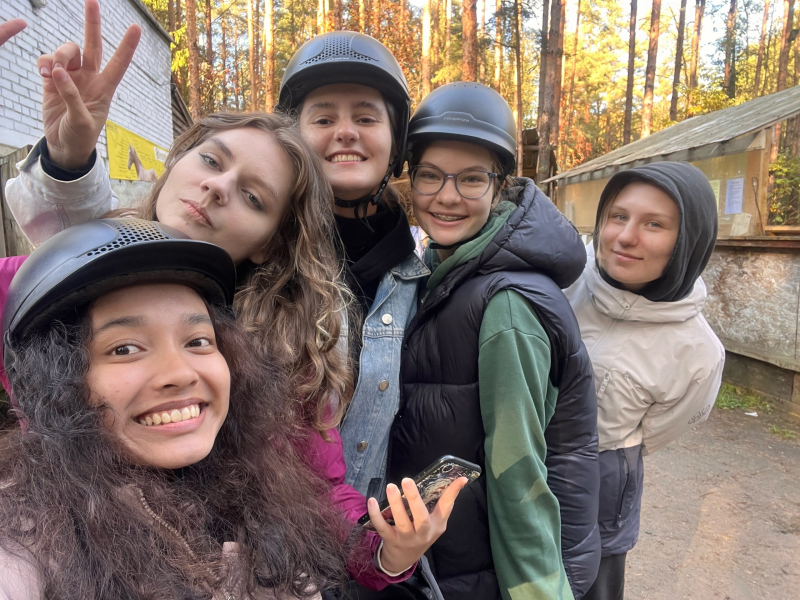
How did you find out about the club and what drew you to it?
I discovered it through the my.itmo app, where it was at the top of the list. I was immediately intrigued, especially by a post on their VK page about an upcoming event at Solnechny Ostrov (“Sunny Island” – a hippotherapy center near St. Petersburg – Ed.). It involved cleaning up, interacting with animals, and even horseback riding, which sounded exciting.
Being an exchange student, I reached out to the contact person, Gleb Bondarenko (the club's trip coordinator – Ed.), with a few questions. He was very kind and patient in answering them, so I registered and was soon invited to the volunteer group. I’ve always loved animals, especially horses and dogs, so this opportunity felt perfect to me. It also reminded me of my late dog, Upin, who passed away a few years ago.
Joining the event allowed me to connect with others, do something meaningful, and spend time with animals. It’s been one of the highlights of my ITMO experience so far, and I’m grateful for it.
International students often worry about the cultural and language barriers. Did you experience any such challenges?
Yes, the language barrier was one of the biggest challenges I’ve faced here, and it can be frustrating at times. A few days before the event, Gleb asked if I could speak Russian. When I said I couldn’t, he reassured me that they’d do their best to help me. True to his word, everyone made a great effort to ensure that I was included in the conversations and activities.
A fellow member, Anastasiya, was especially helpful and went above and beyond to make sure I didn’t miss out on any details. Such kindness and support made the whole experience much more enjoyable. Others, too, were incredibly welcoming and I felt comfortable and valued by the group. This experience taught me how language is not a limitation when people are genuinely supportive, and it’s something I’ll always cherish.
Yohana Beatrice (center), Gleb Bondarenko (front) and fellow club members. Photo courtesy of subject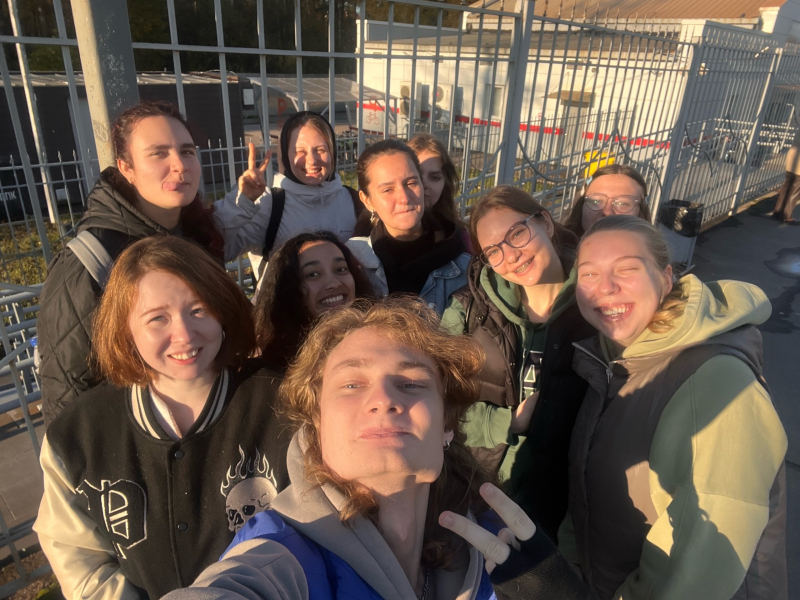
Which of the club’s events have you participated in so far and what were your impressions?
I took part in the volunteer program at Solnechny Ostrov. We learned how to properly care for animals such as horses, rabbits, and goats. I’ve always loved animals, so it was a rewarding and educational experience to interact with them up close.
I also made new friends, and despite initial concerns about language, I quickly felt at ease. Besides, the peaceful environment of the farm made it a perfect escape from the hustle and bustle. It gave me a chance to reconnect with nature and enjoy the serenity.
I was worried about joining the club as an exchange student, but in the end I got to learn practical skills, build new friendships, and gain confidence in stepping out of my comfort zone. It showed me the value of kindness and mutual support regardless of cultural or language differences.
So, are you going to stay a member of the club?
Absolutely. I’m eager to participate in as many events as I can during my time here. Whether it’s helping animals or any other activity, I’m excited for what’s next.
How to join
Becoming a Paws of Help member is as easy as it gets. You don’t need to provide any documents or fill out any forms – all you have to do is attend one of the events and follow the club’s VK page for announcements.
Club members on an outing to the cat shelter KOTOHAUS. Credit: vk.com/pawsofhelp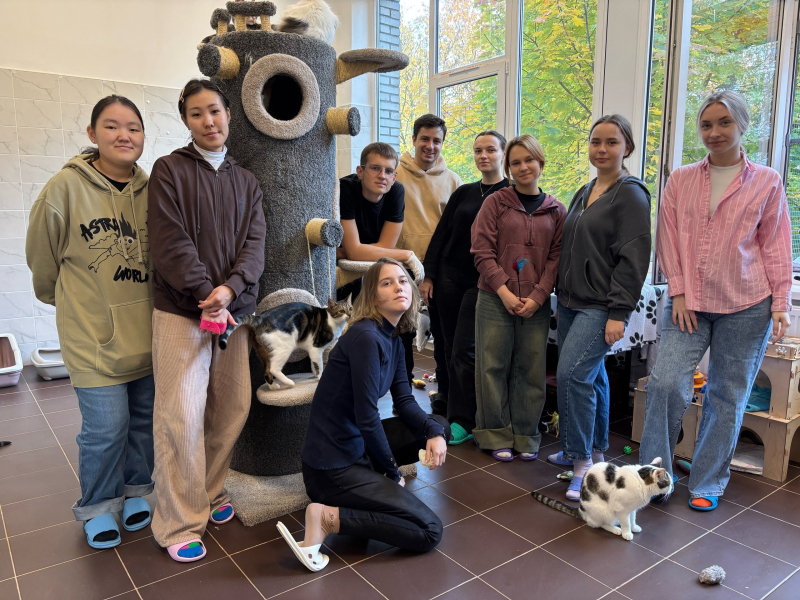
Animal rescue: tips and resources
Few would walk by an animal in need – but what’s the correct approach? Even a quick Google search will provide a myriad of mutually contradictory tips. So, here are some essential guidelines from the club’s staff.
Domestic animals
- If the animal has an ear tag, it’s a stray that has gone through the trap-neuter-return (TNR – or ОСВВ in Russian) process. Unless it is visibly injured or distressed, it does not require special assistance.
- If you find a lost pet, take a photo and share it via local social media groups – such as for nearby housing complexes or neighborhoods. Look for a collar tag or a tattoo on its underbelly. With dogs, entering these numbers into the Russian Cynology Federation database will provide info on the club or shelter associated with the animal; you can contact them and request the pet owner’s contact details.
- Another handy way to find the owner is to paste paper notices in nearby crowded locations.
- Shelters may not always accept lost pets for holding due to overcrowding, so you may consider taking the animal home while you’re looking for its owner. If this isn’t an option (e.g., you live in a dorm), you can opt for a paid animal hotel.
- If the animal looks sick, take it to a vet’s office. Again, if you can’t bring it home, animal clinics may offer to keep it overnight for a fee.
Are there any organizations in the city that help injured wild animals, such as birds?
One such organization is the Russian Quarantine Center Veles. They can be reached by phone at +7-964-339-40-39 or 8-800-201-49-99 (free nationwide number). They don’t deal with birds, however; instead, you can contact the St. Petersburg committee for environmental protection (8-812-417-59-36) or the Leningrad oblast committee for protection of animals (8-812-539-50-00). You can also find a detailed guide (in Russian) on Veles’ VK page.
A young Baltic ringed seal pup, of the kind often encountered in waters near St. Petersburg. Credit: Wikimedia Commons / Estormiz (CC0 1.0 Universal)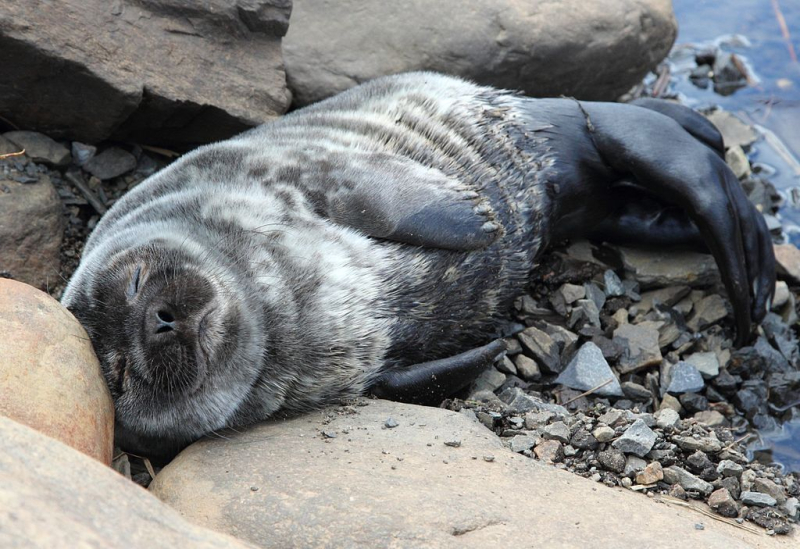
What about “exotic” animals such as seals, moose, boars, or foxes who find their way into the urban environment?
- Most importantly, try not to startle them – they’re already anxious and their reaction can be unpredictable.
- Secondly, don’t try to assist them yourself. Only a specialist will know what to do.
- Seals from the Gulf of Finland often find their way into St. Petersburg’s rivers and canals. You can contact the Baltic Ringed Seal Foundation by phone (+7-812-699-23-99) at any time, 24/7. Based on your description, they’ll be able to assess the state of the animal, organize its rescue, and, if necessary, instruct you on what to do.
- In other cases, you can call the hotline of the Ministry of Emergency Situations (01 or 101) or the general emergency services number (112).
To learn more about ITMO’s varied student clubs, how to join them, or create your own, see our dedicated guide on the topic. For other ways to make friends as a new arrival, check out these tips from international students. To find out all about the role of animals in Russian and Slavic culture, see this article from our Russian Monday series.
